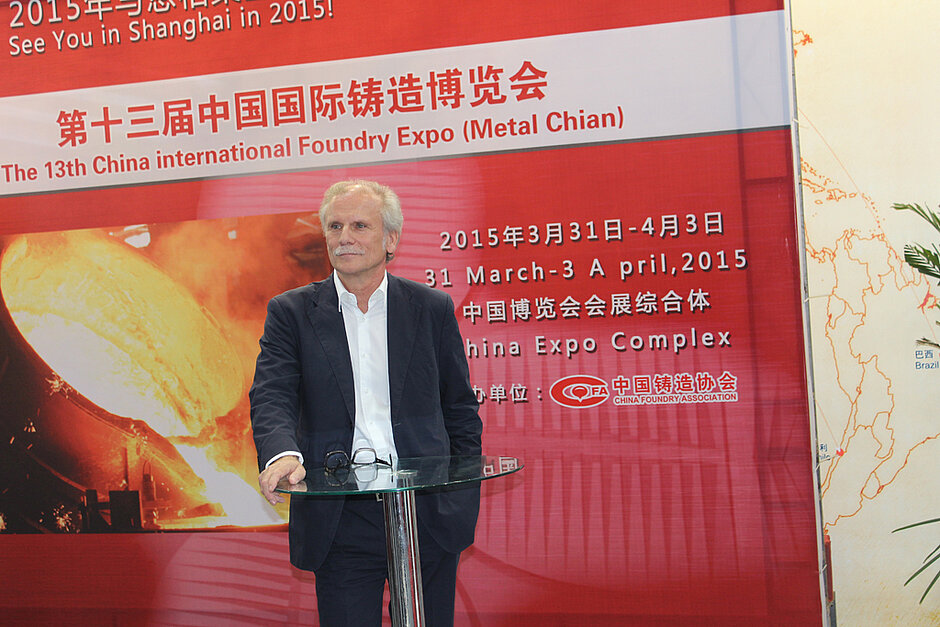We met up with Dr. Stephan Hasse, publisher and chief author of the online Foundry-Lexicon, on his way to China at the Munich airport for a short interview:
FP: Dr. Hasse, the Foundry-Lexicon in English has been available online now for two months, how has it been accepted internationally?
SH: I am very satisfied with the distribution of the online English translated version. We currently get hits every week now from over 100 countries around the world. In other words, the foundry lexicon is internationally accepted around the world and this has been long overdue.
FP: Have there been any concrete reactions?
SH: Yes, I have received letters and emails from all over the world by universities, foundries and suppliers. I am particularly pleased with the positive response from the strong foundry nations such as China and India.
FP: The Foundry-Lexicon in German and English is available online for free, how do you fund this project and what are the next steps?
SH: I would like to take this opportunity to thank all the sponsors from the supplier industry for their contribution and cooperation. Especially the title sponsors, without whom the project of translating the Lexicon into English would not have been possible. Having a presence is worthwhile for everyone and the best evidence of this is the rapidly increasing worldwide traffic to the website.
The online encyclopedia is not a static but an active work. We are working on the continuous development of the lexicon, staying close to the latest state of technology and are open for adding new industry-relevant keywords, branch relevant reports and any other references. This doesn’t only concern the foundry industry, but the supplier and casting consumer industry as well.
FP: You are able to cover large areas of the foundry world with the German and English versions, which other languages would be suited for translation?
SH: When I think of the big foundry nations, the logical direction would be translations into Chinese, Portuguese, and Spanish. Through my main occupation, I am currently personally active in Chinese and Spanish foundries and know how important it is to have an understanding at the same technical level and in the same language. This applies particularly to China, where the publication of the foundry lexicon in their native language has the greatest priority. Of course, I can imagine Turkish, Arabic or Russian edition to be next. But as I said, there is great interest at the moment, for a Chinese edition of the Foundry-Lexicon.
FP: Thank you for this short interview and Good Luck!
<link http: www.foundry-lexicon.com _blank external-link-new-window external link in new>![]() www.foundry-lexicon.com
www.foundry-lexicon.com
also available in <link http: www.foundry-planet.com _top external-link-new-window external link in new>![]()


